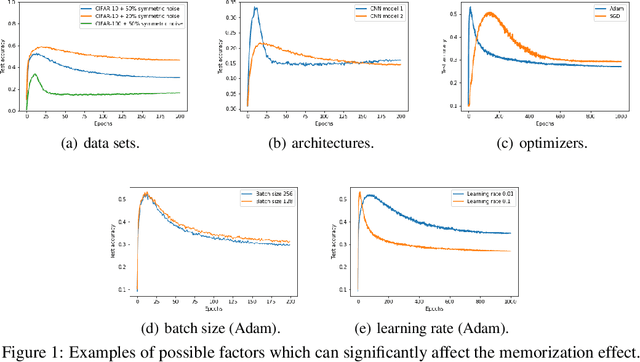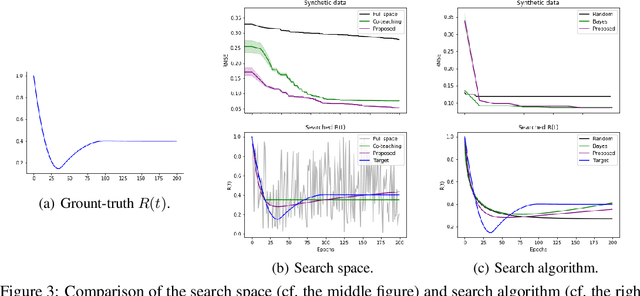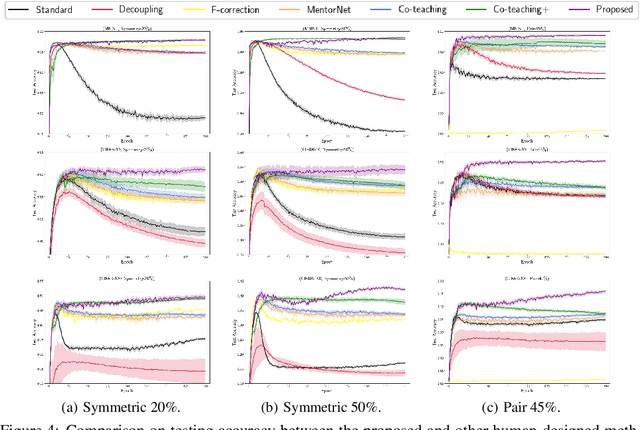Searching to Exploit Memorization Effect in Learning from Corrupted Labels
Paper and Code
Nov 06, 2019



Sample-selection approaches, which attempt to pick up clean instances from the noisy training data set, have become one promising direction to robust learning from corrupted labels. These methods all build on the memorization effect, which means deep networks learn easy patterns first and then gradually over-fit the training data set. In this paper, we show how to properly select instances so that the training process can benefit the most from the memorization effect is a hard problem. Specifically, memorization can heavily depend on many factors, e.g., data set and network architecture. Nonetheless, there still exist general patterns of how memorization can occur. These facts motivate us to exploit memorization by automated machine learning (AutoML) techniques. First, we design an expressive but compact search space based on observed general patterns. Then, we propose to use the natural gradient-based search algorithm to efficiently search through space. Finally, extensive experiments on both synthetic data sets and benchmark data sets demonstrate that the proposed method can not only be much efficient than existing AutoML algorithms but can also achieve much better performance than the state-of-the-art approaches for learning from corrupted labels.
 Add to Chrome
Add to Chrome Add to Firefox
Add to Firefox Add to Edge
Add to Edge